#Murray Franklin
Photo






JOKER (2019) | dir. Todd Phillips.
#melisgifs#moviegifs#movieedit#dailyflicks#film#movies#entertainblr#filmedit#filmgifs#filmtv#fyeahmovies#tvandfilmdaily#tvandfilmgifs#cinemapix#cinematv#robert de niro#murray franklin#joker#joker 2019#joaquin phoenix#arthur fleck#dcu#dcugifs#dcuedit#jokeredit#the joker#dceu#joaquin phoenix joker
264 notes
·
View notes
Text

Joker (2019)
8 notes
·
View notes
Text




Theirs a new trailer for Joker: Folie A’Deux or as I like to call it “Joker 2” and as the first Joker is one my favorite movies of all time, I have very high expectations for the sequel. After seeing the trailer, here’s 10 things I want to see in Joker 2.
10.) Make it crazier than the first one.
- The first Joker did a great job at making society the bad guys and telling the story from a victim perspective. This being said, I want the last 20 minutes of the first film for the entire film this time around. We know the city Arthur is from is crap. In his own words “every one is awful” now what? You know what to do Joaquin, don’t let us down.
9.) Utilize Lady Gaga’s talent.
- From what we saw, the film is going to be a music eccentric theme this time around, almost like a morbid rendition of “Lala Land.” One of the best scenes in the first Joker was the bathroom dance scene where the score and acting of Joaquin are paired excellently after his first kill. If it’s truly crazier than the first one, we can have scenes 10 times as shocking as this but this time with Lady Gaga’s vocal talent. I get chills just thinking about this.
8.) Make Harley Quinn nothing like we’ve seen before.
- In the early news, there was speculation she wasn’t Harley Quinn, but as the trailer shows in the “Joker and Harley” headlights, she is most certainly the famous character. My initial reaction was they have to make her unique and just as crazy as Arthur. Throw us for a curve ball. And for the love of god, please don’t make her ANYTHING like the 2016 film. No hate to Margot Robbie, but it isn’t gonna work for this film. She needs to be crazy, not hot.
7.) Utilize the subjective filmmaking for both main characters.
- The first Joker had no scenes where Arthur wasn’t in the shot. (Rewatch if you don’t believe me.) Ideally, I’d like this with both Arthur and Harley for this time around. After all, the title is French for “shared mental illness” so share the screen.
6.) Make the antagonist hatable.
- The first shot of the trailer is, “got any jokes today Arthur?” Which tells me the city’s establishment or Thomas Wayne’s side isn’t going to pull their punches this time around. This is necessary in a film where the villain is the main character. In the first film, you can’t help but hate Murray. I really hope they keep this energy in the sequel.
5.) What does Arthur have left?
- He’s got his revenge. His abusive mother is dead. The bully is shot. The city is on his side as we see in the trailer. So what is his goal? I hope it’s not just, “to make good music” but a situation where if it was any other character we couldn’t root for him, but because we know what Arthur’s been through, we anticipate his victory as the city dons the clown masks.
4.) Please make the ending just as good as the first.
- You’ve got 2 leads this time around. This could either go really good or really mid. I hope they take a break from the musical performances to shock us and get the adrenaline going in the end as the first one did excellently.
3.) Interwove it with the first one.
- The first Joker did a great job of beginning and ending sub plots. Whether it was his mother, his name, or the 3 pricks in the subway. There was excellent resolution. This can be talked about here but with just enough speculation to keep us hooked.
2.) Make it quotable.
-“How about another joke Murray?” Is one of the most epic moments in all of cinema, not only for the pay off, but the speech and dialogue that leads up to it. Theirs so many quotes from that film and if they’re writing songs for this one, that’s an absolute win.
1.) Leave room for more.
- A dream of mine is too see Pattinson’s Batman fight Joaquin. While this might be a bit of a stretch, I’d settle for a third one. He’s gonna get his revenge on more rats in society. And it’s gonna be awesome. So why not make a third? Maybe it’s wishful thinking but one things for sure, I can’t wait. AHAHHAHAHAHHAHAHAHA
#dc joker#joker folie a deux#lady gaga#joaquin phoenix#dc comics#dc universe#top ten#joker#Murray Franklin#cinema#film#film review#movie
4 notes
·
View notes
Photo


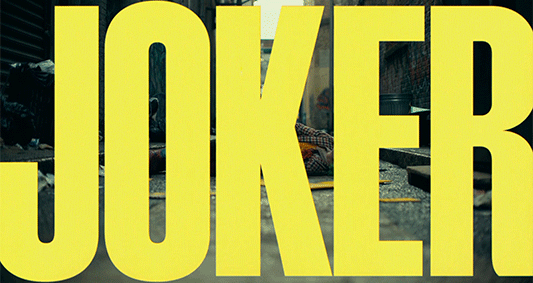



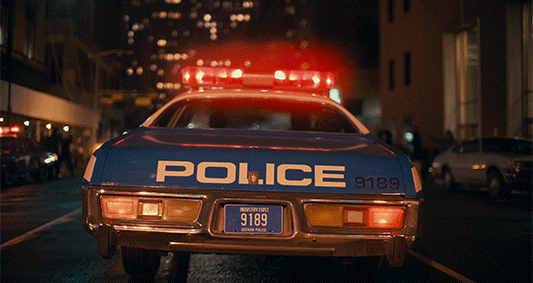
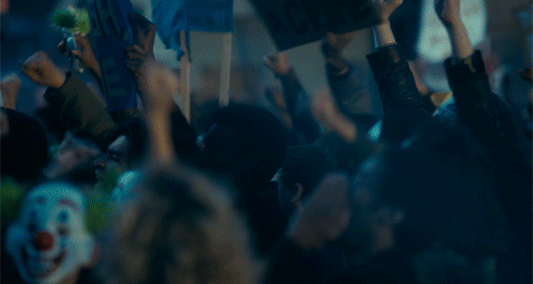
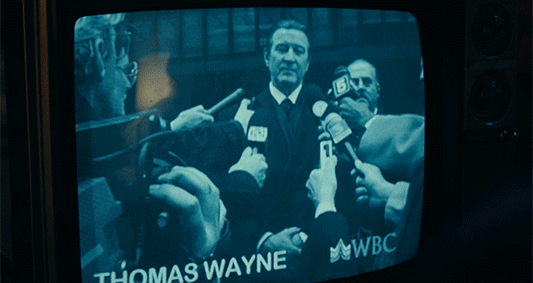

«Put on a happy face»
JOKER (2019) dir. Todd Phillips
#джокер#джокер2019#joker#joker 2019#joker2019#arthur fleck#joaquin phoenix#todd phillips#dcedit#gotham#dcfilms#joker movie#dc#moviegifs#murray franklin#robert de niro#thomas wayne#brett cullen#movie#cinema#film#gif#gifs#my gifs#post#my post#scene
41 notes
·
View notes
Text

11 notes
·
View notes
Text
Thomas Wayne and Murray Franklin both used familiar names with people they didn't know - buddy, pal - and yet they were, in my opinion, two of the Worst People™️ in the film. Something about that tickles me but I'm not sure why.
13 notes
·
View notes
Text






Murray Franklin's, a proto-comedy club in 1950s Miami Beach.
1 note
·
View note
Text
Joker Review
🎶Smile though your heart is aching, smile even though it’s breaking. When there are clouds, in the sky. You’ll get by if you smile through your fear and sorrow. Smile and maybe tomorrow, you’ll see the sun come shining through for you🎶
Hello people, I assume you all know where this song came from. That’s right I finally saw the Joker movie and I understand what people mean when they are going through their “Joker arc”. Needless to say, this movie is a banger.
The realistic atmosphere, the choice of music, the brilliant acting, I loved every second of it. What makes this movie better is that the killing of Martha and Thomas Wayne makes a lot of sense now. In the early Batman movies, we see Bruce Wayne’s parents getting killed for no reason every time they all walk out of the theater. In this movie, Thomas Wayne runs for town mayor. Politicians are at risk for assassinations. Seeing that in this movie made this way better than any old Batman movie. Honestly, if Joker gets a sequel, I hope they give Bruce Wayne some screen time.
When I was a young boy, I always love Marvel and DC. I love both heroes and villains because they stood out to me the most. Seeing this R rated movie with Joker in it made me smile so much. Now I want to put on a Joker costume and start laughing.
I give this movie a 10/10 with 10 stars. I hope more DC movies are like this in the future.
#murray franklin#joker movie#batman villains#review#spoiler#joaquin phoenix#arthur fleck#penny fleck#gary#bruce wayne#thomas wayne#martha wayne#dc
1 note
·
View note
Text









me core
#girlblogger#girlblogging#tumblr girls#girlblog#ahs#violet harmon#american horror story#my mad fat diary#Rae earl#maren yearly#bones and all#adult world#Amy Anderson#nadine franklin#the edge of seventeen#Emily fitch#skins#skins uk#skins gen 2#skins gen 1#Cassie ainsworth#Lady Bird#Alyssa foley#teotfw#Jessica barden#hailee steinfeld#Emma roberts#taissa farmiga#Hannah Murray#taylor russell
169 notes
·
View notes
Text
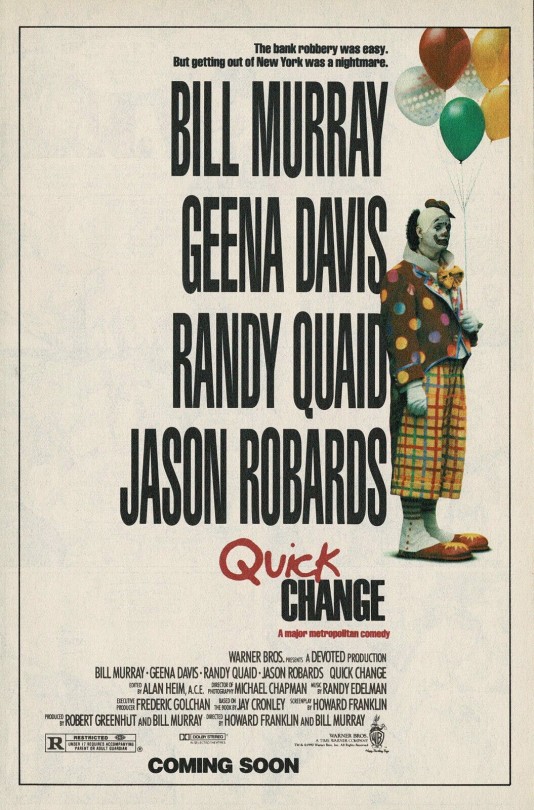
10 notes
·
View notes
Text
Franklin Trailer: Michael Douglas In a New Apple TV+ Series
Franklin Trailer: Benjamin Franklin, despite his notable presence in various historical adaptations and actual history, doesn’t play a significant role in “Hamilton,” one of the most popular blends of American Revolutionary history and storytelling in recent times. However, he is now taking center stage in an Apple TV+ drama featuring Michael Douglas. Dive into the world of this iconic Founding Father, known for his kite-flying experiments and eloquent phrases, in this new series. Read more

#benjamin franklin#entertainment#film#actor#netflix#bollywood#horror#animation#daily news#hollywood#movies#franky franklin#franklin clinton#bill murray#cinema#percy jackson
6 notes
·
View notes
Photo



ROBERT DE NIRO as MURRAY FRANKLIN | JOKER (2019) dir. Todd Phillips.
#melisgifs#moviegifs#movieedit#dailyflicks#film#movies#entertainblr#filmedit#filmgifs#filmtv#fyeahmovies#tvandfilmdaily#tvandfilmgifs#cinemapix#cinematv#joker#joker 2019#murray franklin#robert de niro#todd phillips#2010s#10s#joker edit#dceu#dcugifs
77 notes
·
View notes
Text
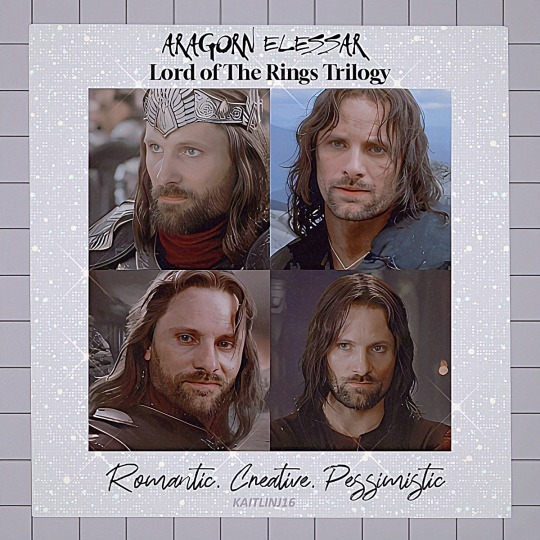
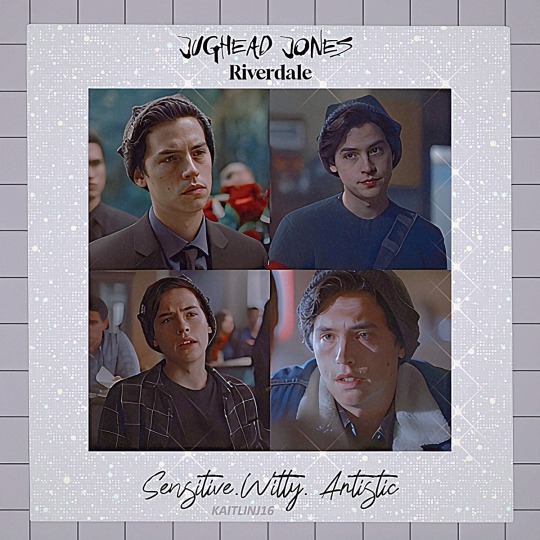
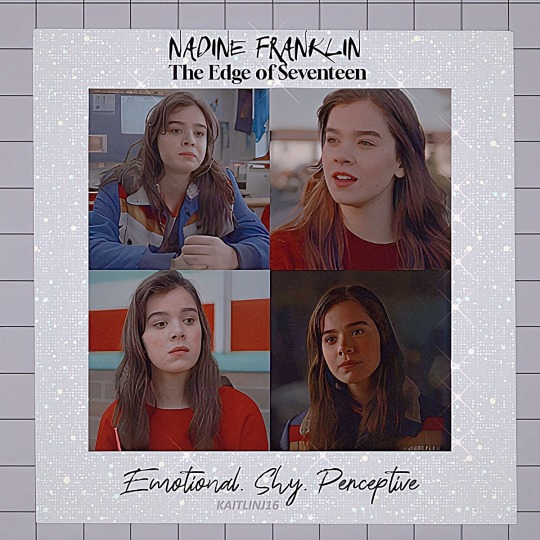




Romeo Montague | Character Variants
Romeo + Juliet (1996)
💙💙💙
#romeo montague#Leonardo DiCaprio#romeo + juliet#jughead jones#Cole Sprouse#riverdale#dean mcmullen#Brenton Thwaites#blue lagoon: the awakening#nadine franklin#Hailee Steinfeld#the edge of seventeen#lucas scott#Chad Michael Murray#one tree hill#aragorn elessar#Viggo Mortensen#lord of the rings trilogy#jon snow#Kit Harington#game of thrones#character variant#edits
9 notes
·
View notes
Text

Thomas Paine by Laurent Dabos (1791)
“The Sudden Emergence of Tom Paine
At the beginning of 1776, New England was ready for independence. So were such leading radicals as Richard Henry Lee and Patrick Henry of Virginia, Christopher Gadsden of South Carolina, and army leaders such as George Washington and Charles Lee. But the bulk of the colonies and the Continental Congress were not. One of the main stumbling blocks to a commitment to independence was personal loyalty to the British crown. There has always been a political taboo of almost mystical force against attacking the head of state, and always the convenient though emasculating custom of attributing his sins to his evil or incompetent advisers. Such long-standing habits impeded a rational analysis of the deeds of King George III. Furthermore, the old and obsolete Whig ideal of virtual independence under a figurehead king of both Britain and America could only be shattered if the king were to be attacked personally.
To rupture this taboo, to smash the icon, and so to liberate America from its thrall required a special type of man, a man fearless, courageous, and radical, an intellectual with a gift for dramatic and exciting rhetoric and unfettered by the many ties that bind a man to the existing system. At this strategic hour America found just such a man: Thomas Paine.
Unlike most of the other eminent leaders of his day, there was nothing in the least aristocratic in the background of Tom Paine. The son of a poor English corset maker, he was forced to educate himself for lack of schooling. After serving a checkered career as corset maker, sailor, and petty bureaucrat, he finally rose to the status of a minor English tax collector. He was soon characteristically in trouble with the authorities. Chosen by his fellow excise collectors in 1772 to petition Parliament for higher wages, he was curtly dismissed from the service by the authorities. Unemployed, bankrupt, the unhappy Paine began his life again at the age of thirty-seven by emigrating to America, armed only with a letter of introduction he had managed to obtain from Benjamin Franklin in London.
Landing in Philadelphia toward the end of 1774, he got a job with a Philadelphia printer and soon rose to the editorship of the printer's insignificant Pennsylvania Magazine. He quickly proved himself an outstanding writer and publicist and quickly made his reputation as a libertarian by publishing a blistering attack on the institution of slavery. In "African Slavery in America," written shortly after his arrival and published in early March 1775, Paine pointed out that the African natives were often peaceful and industrious farmers brought into slavery either by European man-theft or by outsiders inducing the African chieftains to war on each other and to sell their prisoners into slavery. He also riddled the common excuse that purchase and ownership of existing slaves was somehow moral, in contrast to the wickedness of the original enslavement: "Such men may as well join with a known band of robbers, buy their ill-got goods, and help on the trade; ignorance is no more pleadable in one case than the other . . . and as the true owner has the right to reclaim his goods that were stolen, and sold; so the slave, who is proper owner of his freedom, has a right to reclaim it, however often sold." The slaves, being human, have not lost their natural right to their freedom, and therefore, concluded Paine, "the governments . . . should in justice set them free, and punish those who hold them in slavery."
Shortly after this article was published, the first abolitionist society—The Society for the Promotion of the Abolition of Slavery—was established at Philadelphia. Largely Quaker, it included the deist Paine as one of its members.
Lexington and Concord moved Paine to turn his talents to the radical revolutionary cause. In July he urged upon the Quakers the justice of taking up arms in defense of liberty so long as disarmament is not universal. He denounced the British government as highwaymen setting forth to plunder American property; therefore, in self defense, "arms like laws discourage and keep the invader and plunderer in awe." For the British, "nothing but arms or miracles can reduce them to reason and moderation." And in October he combined his antislavery and proindependence views to castigate Great Britain for trafficking in human flesh, and he looked forward to an independence that would end the slave trade and, ultimately, all of slavery.
All this culminated in Paine's tremendous blow for American independence. His fiery and brilliant pamphlet Common Sense, off the press in early January 1776, spread like wildfire throughout the colonies. A phenomenal 120,000 copies were sold in the space of three months. Passages were reprinted in newspapers all over America. All this meant that nearly every literate home was familiar with the pamphlet. Tom Paine had, at a single blow, become the voice of the American Revolution and the greatest single force in propelling it to completion and independence. Charles Lee wrote jubilantly and prophetically to Washington that "I never saw such a masterly, irresistible performance. It will . . . in concurrence with the transcendent folly and wickedness of the ministry, give the coup de grace to Great Britain." And Washington himself endorsed "the sound doctrine and unanswerable reasoning" of Common Sense.
Common Sense called squarely and openly for American independence, and pointed to the choice for Americans as essentially between independence and slavery. But what was more, Paine boldly smashed the icon, directing his most devastating fire at King George himself. For the first time, the king, "the Royal Brute of Great Britain," was pinpointed as the major enemy—the king himself, not just his wicked advisers (the king's advisers were attacked as being in thrall to him). Paine had quashed the taboo, and Americans flocked to imbibe his liberating message.
Not stopping at indicting George III, Paine pressed on to a comprehensive attack on the very principle of monarchy. The ancient Jews had prospered without kings and had suffered under them, he wrote, following the great English tradition of Milton and Sidney; and Holland flourished as a republic. But more important, the division between kings and subjects is unnatural, and bears no relation to the natural distinction between rich and poor on the market. How, indeed, had the natural equality of men before the law become transposed into subjection to a monarch? "We should find the first of them [kings] nothing better than the principal ruffian of some restless gang; whose savage manners or pre-eminence in subtilty obtained him the title of chief among plunderers; and who by increasing in power and extending his depredations, overawed the quiet and defenseless . . . . “ And now the kings were but "crowned ruffians."
In this way, Paine not only laid bare the roots of monarchy, but provided a brilliant insight into the nature and origins of the State itself. He had made a crucial advance in libertarian theory upon the social-contract doctrine of the origin of the State. While he followed Locke in holding that the State should be confined to the protection of man's natural rights, he saw clearly that actual states had not originated in this way or for this purpose. Instead, they had been born in naked conquest and plunder.
Another vital contribution of Common Sense to libertarian thought was Paine's sharp quasi-anarchistic distinction between "society" and "government." Indeed, Paine opened his pamphlet with these words:
Some writers have so confounded society with government, as to leave litte or no distinction between them; whereas they are not only different, but have different origins. Society is produced by our wants and governed by our wickedness. . . . The one encourages intercourse, the other creates distinctions. The first is a patron, the last a punisher.
Society in every state, is a blessing, but government, even in its best state, is but a necessary evil; in its worst state an intolerable one: for when we suffer . . . the same miseries by a government, which we might expect in a country without government, our calamity is heightened by reflecting that we furnish the means by which we suffer. Government, like dress, is the badge of lost innocence; the palaces of kings are built upon the ruins of the bowers of paradise.
In addition to limning brilliantly the nature and origins of monarchy and the State, calling boldly for independence, and attacking George III, Paine set forth the proper foreign policy for an independent America. Here he argued that the connection with Great Britain entailed upon Americans burdens rather than rewards. The Americans should not be tempted by the prospect of Anglo-American domination of the world; on the contrary, America would vastly benefit from throwing open its trade and ports freely to all nations. Further, the alliance with Britain "tends directly to involve this continent in European wars and quarrels, and set us at variance with nations . . . against whom we have neither anger nor complaint." As Europe is our market for trade, we ought to form no partial connection with any part of it. It is the true interest of America to steer clear of European contentions, which she can never do while "she is made the make-weight in the scale of British politics." Thus, Paine adumbrated for America what was later to be called a foreign policy of "isolationism," but which might also be called neutrality or neutralism. Whatever it is called, it is essentially the libertarian policy of free trade and peaceful coexistence with all nations; it is an America that acts as a moral beacon for mankind rather than as judge or policeman.
In addition to all these achievements, Paine managed to outline in this brief pamphlet the internal political program of the libertarian wing of the American Revolution: the new democratic system naturally created by the Revolution. This consisted of rule by democratically elected legislatures established by proportionate representation and responsible to checks upon them by the people. The aim of such government was simply to protect every man's natural rights of liberty and property: "Securing freedom and property to all men, and above all things, the free exercise of religion. . . ." He saw that the superficially plausible lucubrations of such Tory writers as Montesquieu and Blackstone, with their talk of mixed constitutions and checks and balances, masked the repression and hobbling of the democratic element by unchecked aristocracy and oligarchy. Human reason, he implied, must be brought to bear on the myths and accretions of government itself. The much-vaunted British constitution was a tangle of complexities, and hence vague and devoid of a focus of responsibility. In effect, he charged, the so-called checks and balances have led to the aggrandizement of monarchical tyranny over the other branches of government. Indeed, at any given time, for government to act at all, one of the branches must predominate and outweigh the checks and balances. This argument is reminiscent of Edmund Burke's blast against the idea of mixed and balanced government in his anarchistic first work, The Vindication of Natural Society.
Paine concluded the bulk of his magnificent pamphlet with these stirring lines: "O! Ye that love mankind! Ye that dare oppose not only the tyranny but the tyrant, stand forth! Every spot of the old world is overrun with oppression. Freedom hath been hunted round the globe. . . . O! Receive the fugitive, and prepare in time an asylum for mankind." Sounding the clarion call for the democratic-libertarian cause as the party of hope, the party of progress, in short, the party of a secular, rational messianism, he eloquently hailed the impending future: "We have it in our power to begin the world over again. . . . The birthday of a new world is at hand. . . .”
The explosive success of Common Sense emboldened the radicals to follow with pamphlets and articles extolling the goal of independence, excoriating King George as "a full-blooded Nero," and anticipating the great benefits of free trade with all the world that would flow from an independent status.
That the Tories, and quasi Tories, and conservatives who opposed independence should abominate Common Sense was, of course, to be expected, reviling it as that "artful, insidious and pernicious" work of sedition and "phrenzy." Several Tories hastened to publish pamphlets of rebuttal, warning of the "ruin, horror, and desolation" that would stem from abandoning the happy and peaceful status of a colony to pursue the romantic chimera of independence. Independence was roundly denounced as absurdly impractical and "Utopian," a project of "ambitious innovators" who "are attempting to hurry... into a scene of anarchy; their scheme of independence is visionary. . . ." Conservative landed oligarchs such as Landon Carter and Henry Laurens considered the Paine pamphlet as "indecent," "rascally," and "dangerous." But the Tories and conservatives soon found that their attacks on independence were in vain, that "there is a fascination belonging to the word Liberty that beguiles the minds of the vulgar. . . ."“ - Murray Rothbard, ‘Conceived in Liberty, Volume IV: The Revolutionary War, 1775-1784’ (1975) [p. 135 - 140]
#rothbard#murray rothbard#liberty#conceived in liberty#paine#thomas paine#common sense#dabos#laurent dabos#america#independence#revolution#rebellion#British#empire#monarchy#slavery#libertarian#libertarianism#economics#austrian economics#history#revisionism#george washington#benjamin franklin#burke#edmund burke
4 notes
·
View notes
Text
Macabre Month 6 Part III: Ted Bundy: American Boogeyman (2021)
In today's review, I find out what it takes to track down an American Boogeyman. As I attempt a #positive review of the 2021 film Ted Bundy: American Boogeyman
#ChadMichaelMurray #HollandRoden #LinShaye #OliviaDeLaurentis #JakeHays #VictoriaDiGiorgio
True crime, the lurid recounting of often horrific murders shows no relenting, cases both from the highly infamous to the obscure, are picked apart and presented in detail. In 2021, with the rise of documentaries and dramas dedicated to these murders and justice, an infamous director turned his niche of alternative true crime examinations. Fuelled by the increasing passion, he examined the crimes…

View On WordPress
#2021#Bruce Dern#Cara AnnMarie#Chad Michael Murray#Chelsea Frei#Diane Franklin#film#films#Holland Roden#horror#Jake Hays#Jessica L. Downey#Lin Shaye#macabre month#Michael Pare#Movies#Olivia DeLaurentis#positive#review#Victoria DiGiorgio
3 notes
·
View notes
Text
NÃO TENHO TROCO
Quick Change – EUA (1990) – umfilmede. Facebook in: Jesus Hemp – 26 de outubro de 2023
Grimm (Bill Murray) é um assaltante que, vestido de palhaço, assalta um banco em companhia da sua namorada Phyllis (Geena Davis) e de um amigo, Loomis (Randy Quaid), que o ajudaram na operação fingindo serem clientes do banco. Adoro Cinema
Resumo do filme. 12 de julho de 2021
Não Tenho Troco (1990) TVRIP SBT…

View On WordPress
# cinema em casa sbt# Geena Davis# Howard Franklin# Maratona 4h20: filmes doidões para chapar assistindo Netflix# NÃO TENHO TROCO# Não Tenho Troco (1990) TVRIP SBT Dublado - Festival de Filmes# Quick Change# Randy Quaid# Refilmagem (Remake)# Resumo do filme.# roubo de banco# Roubos e roubos#Bill Murray#comédia#filmes de comédia engraçado e comédia romântica#movies
0 notes